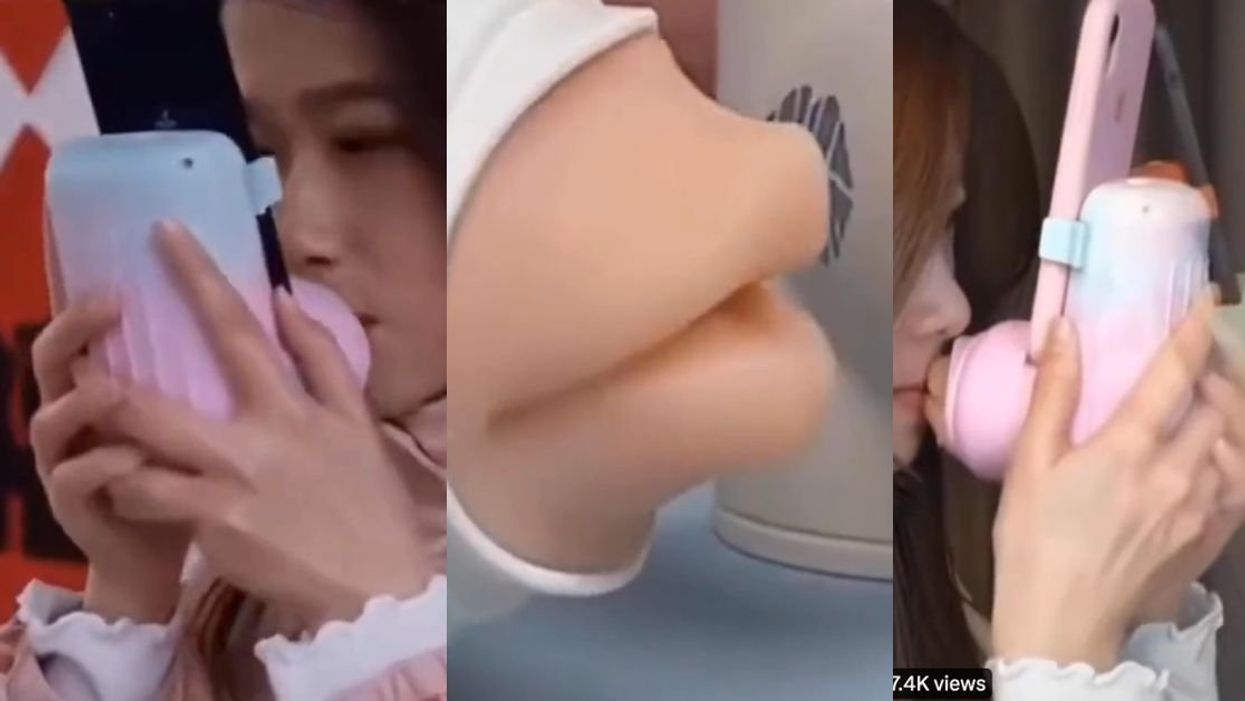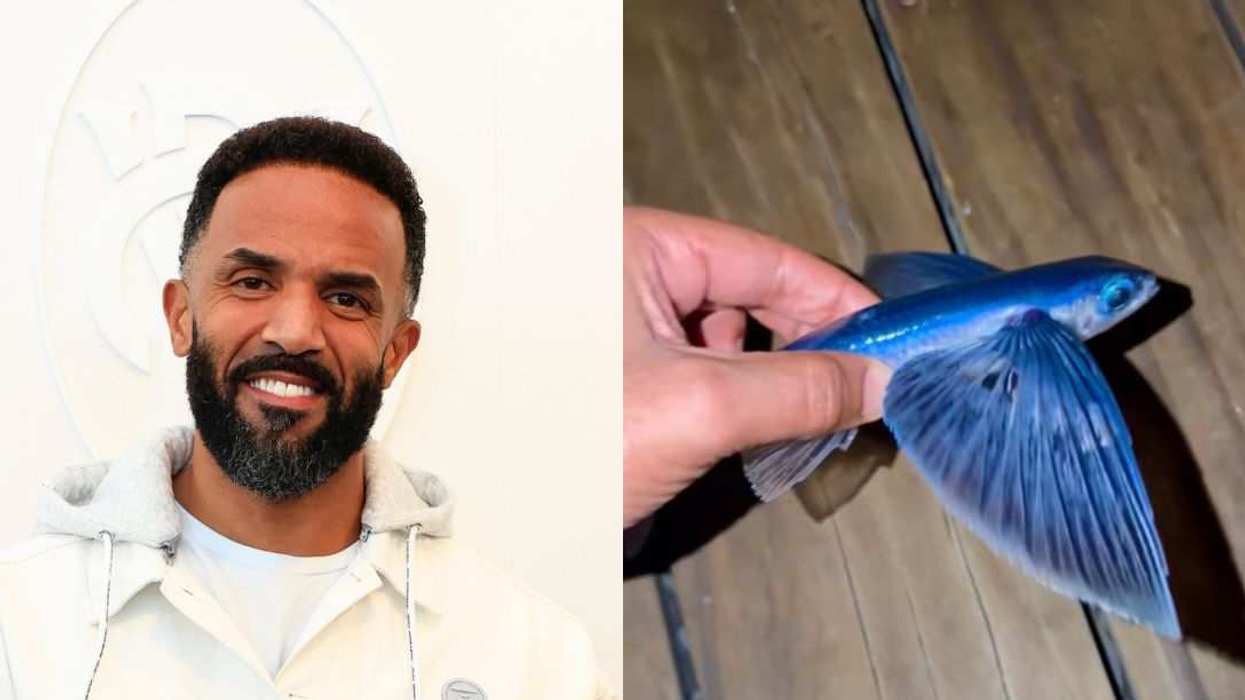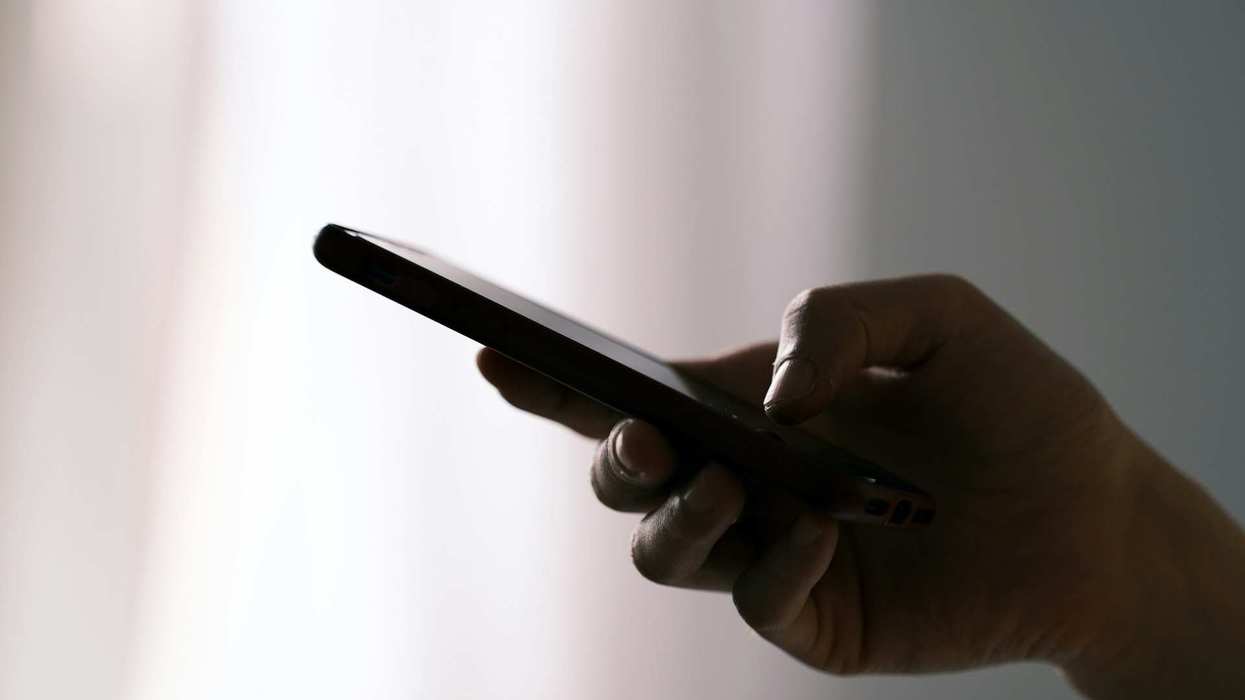A new invention that was created for making long-distance romance a little easier was not something that some social media users had in mind.
Students of Changzhou Vocational Institute of Mechatronic Technology, a university in eastern China, developed a virtual kissing device, according to The Global Times.
The odd-looking silicone contraption looks like a pair of flesh-toned pursed lips.
The combination of pressure sensors and actuators built into the device allows it to mimic the pressure, movement, and heat of a person's lips when users are connected through a mobile app.
The product was created to promote monogamy in long-distance relationships.
Jiang Zhongli, the lead inventor, said he came up with the Remote Kiss based on his own experience.
He said:
"In my university, I was in a long-distance relationship with my girlfriend so we only had contact with each other through the phone."
"That’s where the inspiration of this device originated."
The device, marketed as a "long-distance lovers miracle kissing device," is available for sale through the Chinese online retailer Taobao and retails for 260 Chinese yuan or about $38 for one and about $79 for a set.
In addition to couples exchanging kisses through the app, users can also share their smooches online and add sound effects made by them.
Here is a video demonstration of the contraption.
The reviews were in and very mixed.
It wasn't lost on Big Bang Theory fans that this concept was introduced before.
These Twitizens gave it a thumbs up.
Others predicted the future of this love technology.
Some users said there was room for improvement.
CNN reported a similar gadget was developed called the “Kissinger,” which was launched in Malaysia by the Imagineering Institute in 2016.
The difference with the Kissinger was the contraption came in the form of a touch-sensitive silicon pad rather than 3D lips.














 @TweetforAnnaNAFO/X
@TweetforAnnaNAFO/X

 Steve Urkel Oops GIF
Steve Urkel Oops GIF  Moon Walk Dance GIF
Moon Walk Dance GIF  The Office Monday GIF by 20th Century Fox Home Entertainment
The Office Monday GIF by 20th Century Fox Home Entertainment 